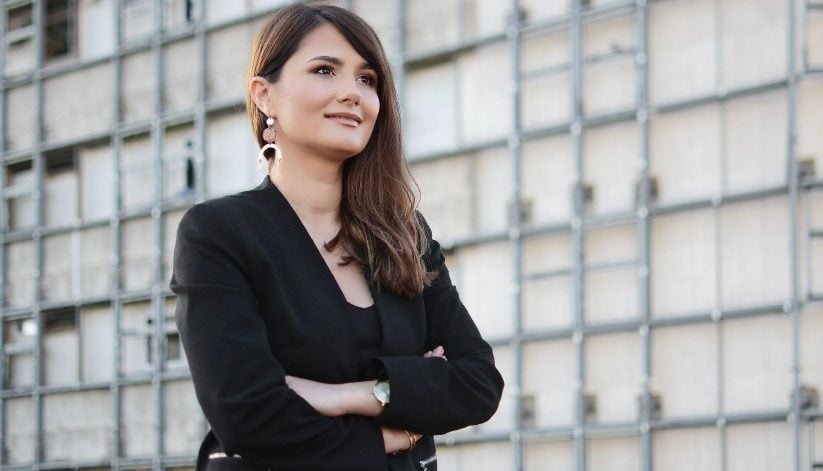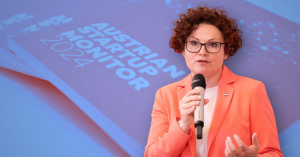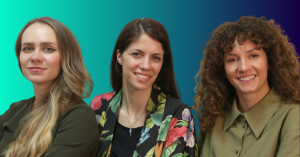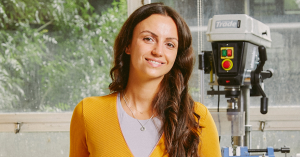Connecting technology with business is one the main missions for Monika Rizovska, who has been a part of North Macedonia’s IT industry for more than a decade. Rizovska is a cofounder of Ways2help – a Macedonian non-profit platform that connects organizations, companies and individual donors to help socially disadvantaged families, orphans and children of single mothers. Rizovska is also a Growth Marketing Manager at emteq labs, an emotional analytics platform for the objective measurement of human responses in real time.
In this interview for The Recursive, Rizovska talks about her beginnings in the IT industry in North Macedonia and her career path that took her to some of the biggest companies in the region and worldwide – wearing many hats, from project management to social media, digital and growth marketing, and founder of a North Macedonian non-profit.
Rizovska also reflects on her role as a “Women in Tech” ambassador and helping young female professionals realize their potential, as well as artistic career which also helps her relax in an otherwise busy work life.
The Recursive: Tell us about your career path so far and how did you come up with your current position at Emteq Labs?
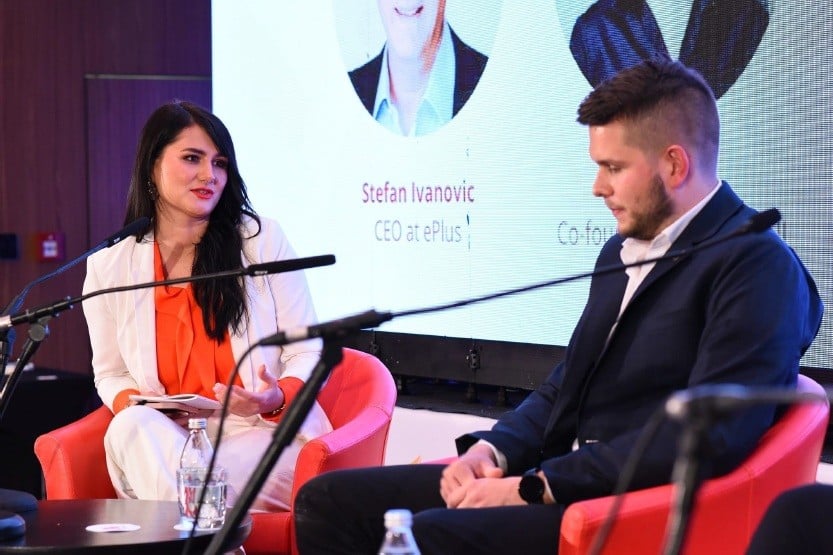
Monika Rizovska: During my e-business studies, I realized that what I really want is to connect technology with business, change the organization and improve systems. I was naturally good at communicating and working with a team and I knew I wanted to work in a fast-growing international environment. I still admire all those who can do repetitive work, but I knew for myself that I could not. Luckily for me, I started working at the largest IT company in Macedonia where I discovered the different IT technologies as well as the various and future IT professions.
I became a significant part of many organizations such as Women in tech, where we managed to connect over 2,000 girls and women in open public conversations through online webinars and networking meetings. ”Women in Tech” today cooperates with educational centers, IT companies and we give everyone the opportunity to share their experience, to upgrade professionally through training, workshops, coworking meetings, speaking opportunities and attending international conferences. Thanks to these initiatives, I witnessed many success stories from girls who changed careers and professions and managed to get employed and today run their own companies.
During the pandemic I was part of many hackathons, start up weekends and I started working as a consultant helping and developing businesses, other startups, being involved in teams who developed applications, I managed products, did initial research and long-term digital and marketing strategies. My desire to solve problems, to connect creativity with technical knowledge, psychology brought me to be part of many startups working on applications devoted to making elderly people healthier and more active.
My passion for the newest technologies brought me to the company where I work today, emteq labs where I work as a Growth Manager. The focus is on VR/AR Products that include sensors which help us to track and monitor emotions in the software and it is really interesting to be part of a team of incredible smart scientists who live to improve the healthcare and help researchers and content managers as well as all patients suffering from depression or any other mental illness.
How did you come up with the idea for Ways2help and what are the main goals of this project?
I believe that everyone is able to help someone, the question is how and whether they want to. During the “StartUp Weekend Covid edition” in less than 48 hours, along with the Ways2help team we decided to create a platform which is trustworthy and connects companies, organizations and individuals willing to help socially disadvantaged families and children. Our goal was to use our technical and marketing skills in helping vulnerable groups and I’m glad that we achieved this.. Miracles happen when we do not limit ourselves and when we give ourselves the space to learn something new. Thanks to the trust of all individual donors, organizations and companies, the “pay a bill” digital option for donating, where you can donate with just a few clicks has resulted in over 2000 paid bills totalling over 60.000 euros for families in need. Our drive to help is our fuel and we’ll continue to work with our team and Ways2help volunteers to help as much as we can.
What have been the advantages and disadvantages of developing in your field as a woman?
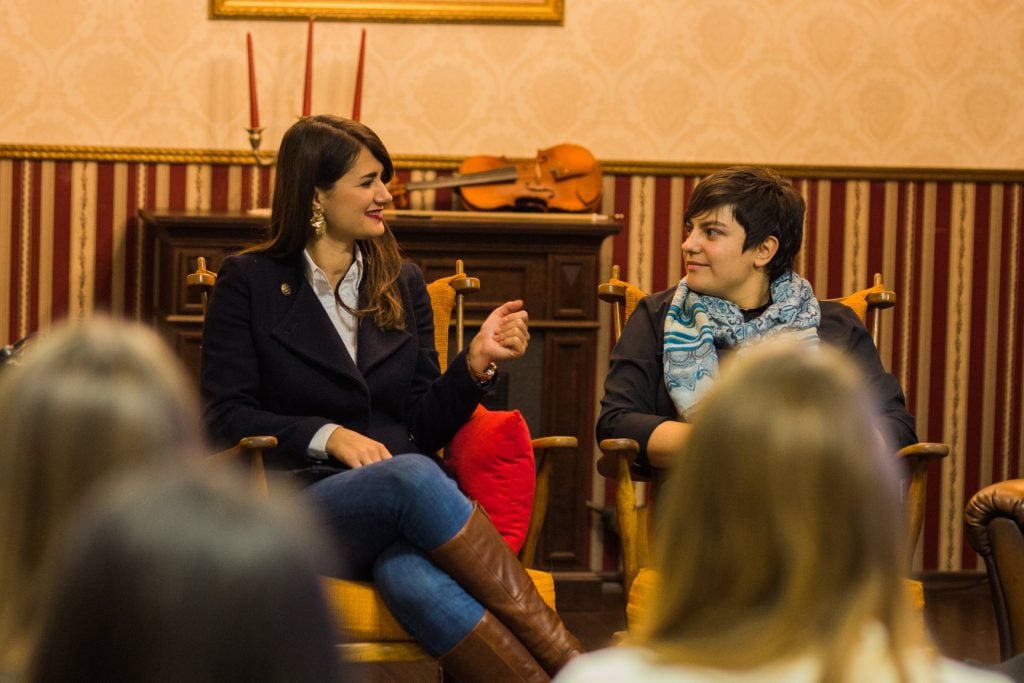
I see more advantages than disadvantages now since it has become a trend to be part of the IT industry. I’m glad that there’s access to many free learning opportunities that bring the variety of IT professions closer to all girls and women on the verge of deciding their future career. I believe that every woman and girl who works in the IT industry nowadays additionally can contribute a lot just by bringing her personal experiences closer to young girls who are still thinking about which direction to choose.
This is exactly what we are trying to do through the Women in tech learning opportunities and initiatives. Our focus in Women in tech Macedonia is on building an inclusive community through collaboration, sharing knowledge and experiences and we are witnessing many success stories.
There is an existing prediction that more than 70% of job positions will be lost in 20 years. Most new positions are and will be in STEM. It would be such a pity if half of the population (women) are not included.
What does a day in your life look like? Tell us something we don’t know about the field you’re working in?
07:00-09:00 – I love starting the day early! I do not use an alarm. I stretch, drink lemon and mint juice and get ready for work.
09:00-10:00 – Since I work remotely, my working day starts with breakfast and I read emails, drink coffee, pass the daily standups – follow-ups on what we’re going to focus on.
10:00-16:00 – I start working and having meetings with the team. I am filled with the uniqueness of every event, campaign, project or task. My work brings diversity and excitement. I could not do repetitive and boring work, although I have endless respect for those who can.
16:00-19:00 – I invest the last working hours in myself and my personal growth. I reflect, read news, train, do certifications, listen to audio books, paint or plan my next trip.
19:00-… – I dedicate this time to simply relaxing or focusing on my second love – art. I go into my studio, play music or an audiobook, and start drawing. I enjoy the time for myself, the sound of brush movements and the smell of the fresh paint, it’s very therapeutic
20:00-… I use this time to be around people that I love and care about, people with whom I grow as a person/ go out/ meet friends
… before sleeping I write my to-dos for the next day. That way I know exactly what I need to do and I’m more focused and productive during the upcoming day
What did you want to be growing up and how has this vision changed over the years?
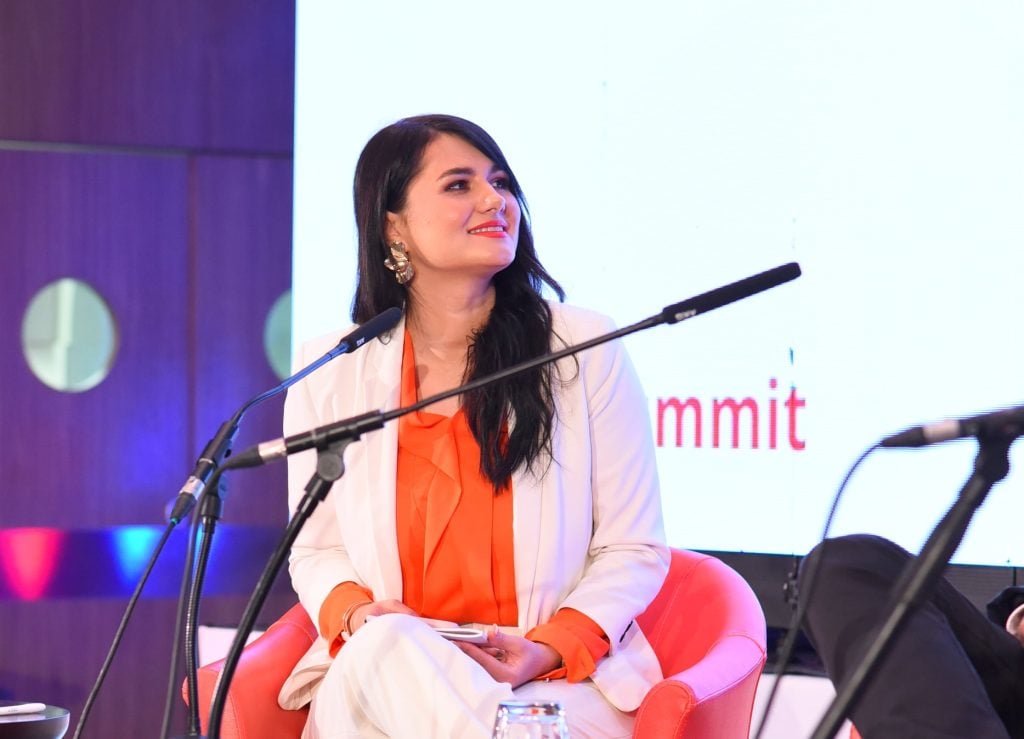
I remember in my early years how my grandfather and I headed to his workshop where we soldered tiles, diodes, and batteries and moved carts and lit light bulbs. Later I did this at school on the basics of technique and production and I could not wait for the next class to come. I was fascinated about how technology helps us to improve and ease our lives. That excitement and vision didn’t change – I knew that I’ll work something with helping people, connecting things and solving challenges.
I think that we need to nurture our curiosity and invest in our personal growth and knowledge by accepting and seeking challenges. There are numerous free online training conferences, and networking events. Today, social networks make it much easier to get access to more information, so it is enough to just want to know more. All that remains is to surround yourself with inspiring people to grow up with, not to underestimate yourself and listen to your inner voice.
The key to finding what really suited me was to experiment, face challenges and learn more about myself and interests through hard work and involvement in many open workshops, competitions, hackathons which turned out to also be the perfect way to get acquainted with new experiences and great connections.
What is your definition of success?
I have several definitions which combined together motivate me to do better:
- Be curious and invest in your personal growth and knowledge.
- Accept challenges and opportunities which bring you closer to where you wanna be.
- Surround yourself with people who push you to grow.
- Be grateful, appreciate and be appreciated.
- Love passionately and listen to your intuition.
What do you think makes you good at what you do?
“Love what you do.”
I’m either all in or all out. For this it’s important to know our “why” and keep connecting the dots.
How has technology shaped your career?
I believe that technology shapes us just as we shape it. In many ways. Going back 15 years ago, most of the professions with which I cooperate and collaborate on a daily basis didn’t exist. There’s access to learning opportunities, free webinars, books and mentors from all over the world.
For everyday tasks, using technology allows me to save time, work more efficiently and faster since I can automate tasks, set up reminders, gather information, track progress, compare, listen to audio books, book transportation, shop online or order a meal. With just a few clicks, we can instantly pay our bills or donate and help someone now. As a person who fully works remotely I’m now able to work from wherever I want with companies which are not physically close to me just by having access to the internet. Most importantly, technology enabled me to connect with various groups of people and increase networking resulting in access to many growth opportunities.
What are your professional goals for this year?
This year is actually going back to myself, so my biggest professional goal for this year is to be able to focus on my family and find a way to balance my career.
Tell us about how you coped with a big failure in your career? How did you move on?
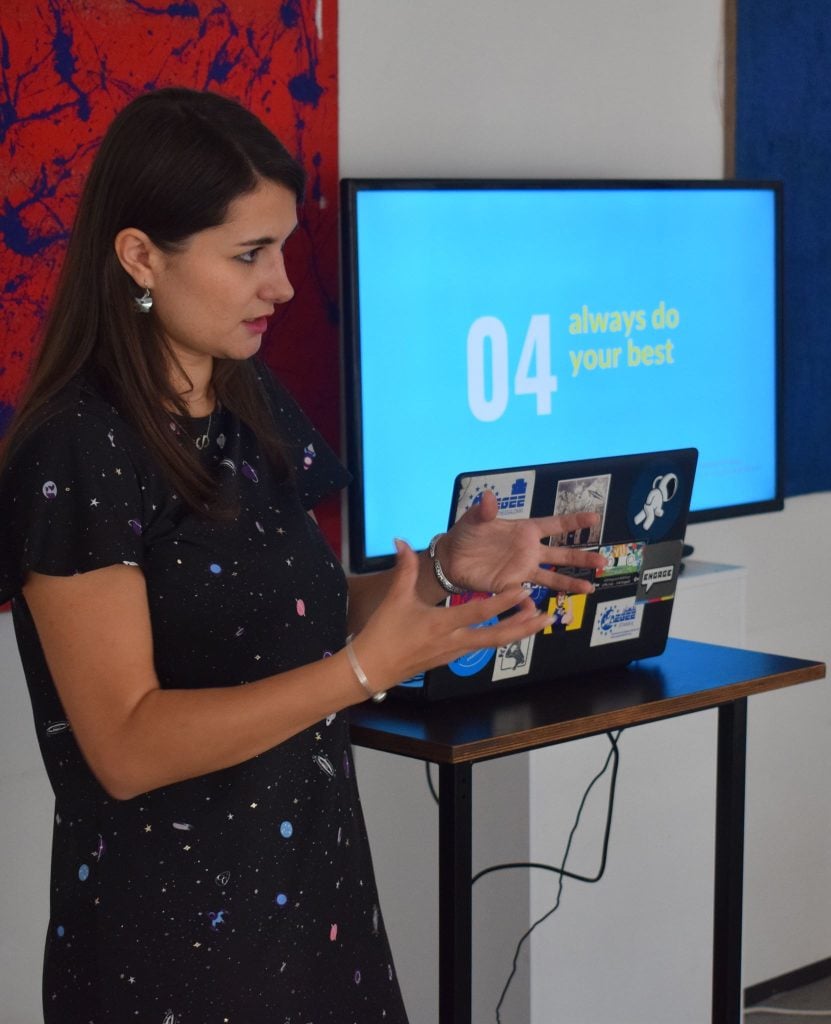
My perception of failures is that every failure is a reminder for us to stop, reassess the situation, learn from it and to draw conclusions for future situations. Some opportunities will fail and some will succeed and that’s normal. In those moments I usually ask myself “What I can do to improve the situation” and “What can I learn from it” this makes me focused on finding solutions and learning from the mistakes which is the most important thing in those situations.
What is your motivator during not-so-productive days?
My drive for motivation is knowing my “why”, setting clear goals which boost me to get up in the morning without alarms. Positive attitude is also a great fuel and it serves a lot having a vision board as a reminder of where we want to be. Then the next thing is managing our energy, not our time and celebrating the small accomplishments. Being aware of our own limitations is also important so we know when we should delegate, stop, pause and take a break, minimize distractions, set up a timer and deadlines to shift the perception of the tasks as a challenge and see the good side of it so it could motivate us to finish.
From remote work, through automation, a 4-day working week, to universal basic income, how do you imagine the future of work?
Flexibility is a valuable currency—at home and at work. I see the future of digital work with freedom of choice – however someone wants or prefers it to be. I am a huge fan of the 4-day work week or the hybrid working lifestyle. This brings freedom to choose your destination and ability to finish the tasks on time which fits your everyday life.

